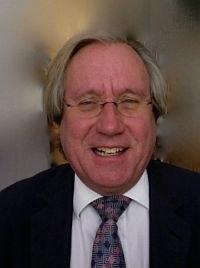Research
Our work lies mainly in the area of biochemical engineering covering three principal topics, namely bioseparations, regenerative medicine and biological waste treatment. We also have interests in non-biological techniques with environmental applications.
Bioseparations
We have studied the purification of a wide spectrum of biomolecules ranging from bio-polymers to pharmacologically-active proteins and peptides. One important aspect has been the optimization of adsorption processes, including highly selective techniques. We have been at the forefront of the development of expanded bed adsorption (EBA) in order to eliminate the need for prior removal of cells or broken cell debris and dewatering prior to purification. We have recently demonstrated a simple generic procedure in which recombinant proteins expressed in inclusion bodies can be chemically solubilized and selectively purified using EBA. In addition the denatured proteins can be refolded whilst still adsorbed in the bed, thus reducing the loss of yield due to protein aggregation.
New technologies for regenerative medicine
We have developed two techniques with applications in stem cell therapies. The first involves the development of adsorptive methods for separation of different classes of cells by exploiting the differences in cell surface markers. We have developed new adsorbents and contactors based on surface coated solid and liquid perfluorocarbons and are currently studying their use for the separation of different types of mammalian cells. The second technology involves novel reactors to optimise the scale-up of growth and proliferation of stem cells in suspended culture.
Biological waste treatment
For the biodegradation of organics present in industrial wastes, we have characterized immobilized cell reactors containing novel biomass support materials designed specifically for the degradation of toxic organics including chlorinated aromatics. In a separate line of research, we have shown that partial uncoupling of micro-organism metabolism in activated sludge waste treatment systems can substantially reduce the amount of biomass produced with consequent environmental advantages. We have achieved uncoupling and energy spilling by either chemical additions and, more promisingly, by adopting certain physical operational methods.
The use of microwave heating in process engineering applications
We have developed processes that exploit the excellent reception of microwave radiation by various forms of elemental carbon. This includes the preparation of activated carbons from waste materials and for the regeneration of spent activated carbons in environmentally acceptable processes. We are re-evaluating the potential of pyrolytic processes for the destruction of certain undesirable wastes including scrap tyres and chlorine containing polymers. We have developed patented technology for the recovery of aluminium from laminated packaging wastes (e.g. Tetrapak), which has led to spinning-off the company (Enval Ltd).
Biography
M.A., PhD, ScD, MRSC, CEng, CChem, CSci
Head of the School of Technology (2009-2013)
Publications
El-Sayed, M.M.H & Chase, H.A. Single and two-component cation-exchange adsorption of the two pure major whey proteins. Journal of Chromatography A 1216 (2009) 8705–8711, (2009)
Li, J. & Chase H.A. Use of expanded bed adsorption to purify flavonoids from Ginkgo biloba L. Journal of Chromatography A 1216, 8759–8770, (2009).
Kuo, W.-H. & Chase, H.A. Adsorptive Detagging of Poly-Histidine Tagged Protein Using Hexa-histidine Tagged Exopeptidase. Journal of Chromatography A 1217(49):7749-58, (2010).
Lam, S.S., Russell, A.D. & Chase, H.A. Microwave-heated pyrolysis of waste automotive engine oil: Influence of operation parameters on the yield, composition, and fuel properties of pyrolysis oil. Fuel 92, 327–339, (2012).
Other information
Howard Chase has held the position of Professor of Biochemical Engineering at the Department of Chemical Engineering since 1 October 2000.
Professor Chase joined the academic staff of the department as an Assistant Lecturer in 1984, became a Lecturer in 1986 and Reader in Biochemical Engineering in 1996. He was the Head of the Department of Chemical Engineering from 1998-2006.
Prof. Howard Chase was a Cambridge undergraduate (Natural Sciences Tripos), a research student (Biochemistry) and a Bye-Fellow at Magdalene College. He was then a Research Fellow of St. John's College Cambridge. He was elected to a College Fellowship at his old college Magdalene on his appointment to the staff of the Department of Chemical Engineering in 1984. At Magdalene, he has held the positions of Tutor for Graduate Students 1987-94, Tutor 1994-96 and Senior Tutor 1993-96.
Professor Chase is a Fellow of the Royal Academy of Engineering and a Fellow of the Institute of Chemical Engineers. He is also a chartered engineer, a chartered scientist and a chartered chemist.
 Prof. Chase demonstrating the technique of expanded bed adsorption to His Royal Highness Prince Philip, Duke of Edinburgh and Chancellor of the University of Cambridge.
Prof. Chase demonstrating the technique of expanded bed adsorption to His Royal Highness Prince Philip, Duke of Edinburgh and Chancellor of the University of Cambridge.


